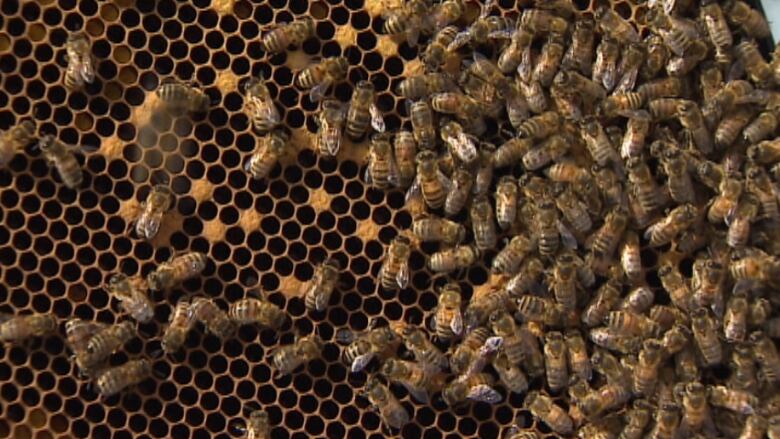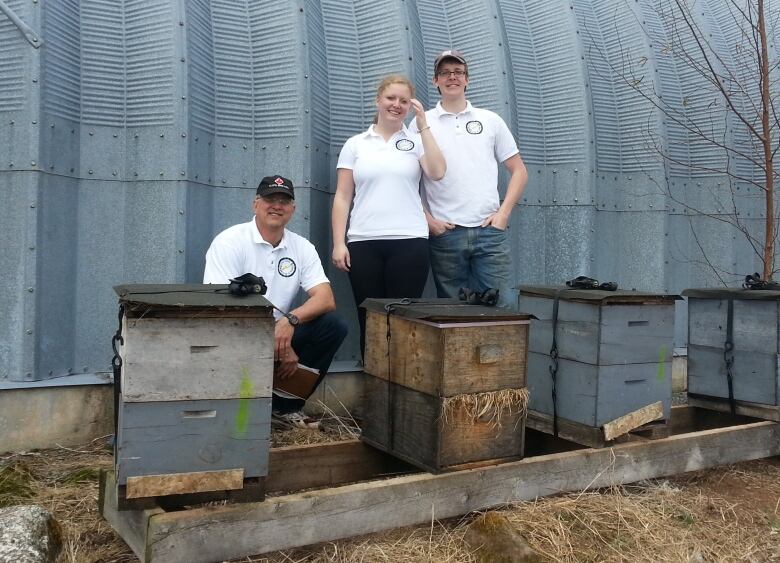Nova Scotia apiaries lose bees to harsh winter
Scotian Bee Honey loses half its hives to long winter, chilly spring

A long winter and chilly spring have killed 50 per cent of the bees at one Nova Scotia apiary, leading to concerns about the health of the bee population in the province.
Scotian Bee Honey had about 390 hives going into the winter season, but the cold cut that down to 190.
"It's like losing 50 per cent of your cattle or 50 per cent of your crop for any farmer," said owner Joe Goetz. "It's not a great feeling but you've got to carry on."
Goetz said bees can withstand extreme cold but not for extended periods. He said the bees will cluster in their hives for warmth and starve to death, even with food just inches away.
- Cold winter may have killed off 30% of honeybees
- Ontario gives beekeepers financial aid to offset bee deaths
Most beekeepers expect to lose about 15 per cent of their bees each winter, but this year was the worst Goetz has seen since he started his business more than five years ago.
The prolonged chilly temperatures are making matters worse. Bees that did survive are smaller and with pollen scarce, they're not finding much food.

"They get smaller and smaller to the point where they can't even keep the queen warm. If she dies then they're doomed," said Goetz.
Goetz's apiary isn't the only one taking a hit. He's the president of the Nova Scotia Beekeepers Association and said he's heard some places have lost 30 per cent of their bees something already predicted by experts.
Rebuilding lost stock comes at cost
Scotian Bee Honey makes everything from specialty honeys to skin care products and the bees are also used to pollinate a nearby apple orchard and blueberry field.
Goetz said the bee deaths mean he won't be able to expand his business as he had hoped instead he'll be focusing on rebuilding his hives.
"We won't have as much honey. We won't be able to commercialize as much as we wanted to this year," he said.
Goetz has already purchased some bees from Australia to help supplement his hives, but they don't come cheap. A single queen bee, which is needed for every hive, costs about $30.
Kelsey Keddy, Goetz's daughter, works at the family business and said fewer bees is bad for everyone.
"Most of the food that we eat even the food we feed to animals, so beef and pork has been touched by bees," said Keddy. "If we don't have bees, we probably wouldn't survive very long on this earth."
The province doesn't yet have a clear picture of how hard Nova Scotia's apiaries were hit.
Officials said those numbers will come in late spring when the Canadian Association of Professional Apiculturists finishes its survey of local beekeepers.












_(720p).jpg)


 OFFICIAL HD MUSIC VIDEO.jpg)
.jpg)



























































































